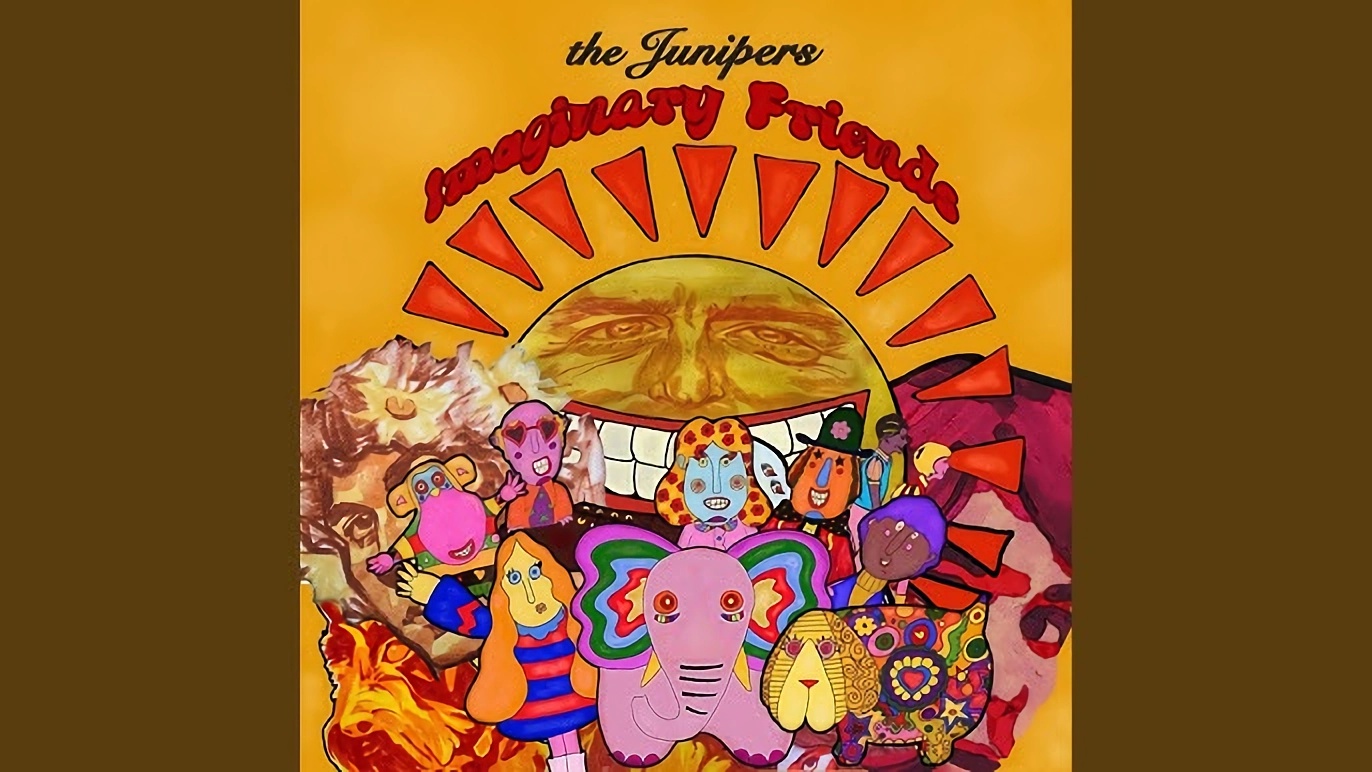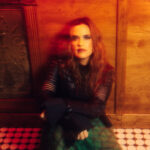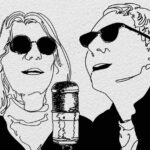
After an eight-year hiatus, Leicester-based psychedelic pop band The Junipers return with Imaginary Friends, an album that playfully explores themes of nostalgia and the boundless creativity of imagination. In this interview by Jason Barnard, band members Joe Wiltshire and Robyn Gibson share insights into the album’s evolution and their enduring love for the sounds and experimentation of the 1960s and 70s.
Congratulations on producing another superb album in Imaginary Friends. It’s been eight years since your last LP, Red Bouquet Fair. Was there a specific moment when you knew it was the right time to return?
Joe: No, not really, it accidentally evolved. We started recording some new things last year which we thought we would maybe put out as a side project EP or something, no plan really. Just playing around with some melodies and trying to make them sound like a mix of all the bands we love with our own little twist, which is just natural I suppose.
Robyn: Thank you kindly, Jason, delighted that you like it! We really enjoyed recording it.
‘Annie Almond’ was the first single from Imaginary Friends. Could you tell us about the story behind it?
Joe: It is about that idea of perfection that people have about others. That there’s this person who just appears perfect to the rest of the world, enigmatic and out of reach. But obviously that idea is never true and there will always be flaws but it’s more from the perspective of the onlooker and the perfection that they see in Annie.
‘My Imaginary Friend’ is inspired by The Beatles’ ‘Martha My Dear.’ How did the idea evolve?
Joe: It’s a song we’ve had for a while in demo form. We started recording it properly it as a band in 2017 but never finished it or released it, apart from a brief appearance in 2023 as a bonus track on our 3rd album Red Bouquet Fair. We liked the idea of someone who really wants a dog but can’t have one because the rest of the family don’t want one, so they have an imaginary dog instead that they take out for walks and roll around in fields with, pick up its imaginary shit etc.
Your second single ‘She Looked Up At the Stars,’ like the album, has a strong late 60s psychedelic feel. How do you approach creating these atmospheric, retro touches without them feeling like pastiche?
Joe: This is an older song too. We are well into Curt Boettcher, Beatles, Beach Boys and all those 1960s and 1970s groups that layer sounds upon sounds. So thats what we tend to do and it we guess it sometimes ends up sounding quite atmospheric. We’re also into newer bands too like Animal Collective, the Elephant 6 bands and also bits of hip hop which is often very experimental, layered & psychedelic too. So not all of the influences will be heard in our tunes but it all plays a part cos if something sounds a bit too cheesy we can maybe rein it in a bit and warp it somehow, or just go mega cheesy and embrace the cheese.
Robyn: I like it when we do a bit of cheese embracing.
What is it about that era’s music that continues to inspire you?
Joe: The experimentation of that era, the ideas and how much fun it is to try to make your own version of that music never gets boring.
Robyn: I’ve always been really attracted to the way records sounded in those days and the ideas of how recording and record production evolved at such an incredible pace. It never fails to keep me fascinated, thinking about recording studios!
During the group’s hiatus, some of you worked on side projects. How have those experiences, like the Bob of the Pops covers versions, influence the songwriting and production on Imaginary Friends?
Joe: Yeah, Robyn, Ben and Ash did a side project called Bob of the Pops where Robyn did his own versions of his favourite songs so that will have polished his musical technique. That is always a great way to get inspired, playing other peoples music and learning every part of a song.
Robyn: The Bob of the Pops recordings are a sort of musical chronological archive of my gradually learning to record using a laptop instead of a standalone home recording machine. An ambition for a long time. It was definitely helpful in terms of assisting Joe with some of the production of the new record.
Joe: Junipers hadn’t done any music for a while and then felt the urge to record a few new folky songs, so recorded them on an old tascam 4 track cassette recorder and released that under the name Yellow Pegs. That project also got us back into recording again. Not long after that the band Portable Radio asked a couple of us if we would play on their 2nd album Counting to Three so we had a sort of musical reunion doing that. Because we had the gear set up at our studio from doing Portable Radio we decided to casually re-record our first album, just playing around really because that album is owned by the label and we couldn’t press it on vinyl or sell it ourselves on Bandcamp etc. Re-recording it would mean we could own the rights to those songs again and do what we wanted with them. We managed to kind of sort that out with the label though so abandoned that project halfway through. Having all the recording gear set up at the studio we played around with some new songs with no intention of it being Junipers or even an album but 3 songs in we did get some accidental momentum and a theme and we ended up making an album.
As a band that’s been around since 2000, how do you think your sound has changed since Cut Your Key, and what has stayed true to your original vision?
Joe: Well, we got our first recording machine in 2000-ish so we kind of started then and evolved ever since. As a proper band we’ve been around since about 2005. Its all just a bit of fun for us. I don’t think our sound has changed too much. I think it changed purposely on our second album Paint the Ground cos we were listening to more folky stuff then and more 70s folk rock and we wanted to make our own little folk rock album. Then we just went back to making our little psychedelicy poppy stuff. But we do have a folky side too which occasionally comes out.
Do you approach your albums conceptually, or do they take shape naturally as the songs come together?
Joe: The second album definitely had a theme and a mood we were going for. We wanted to sound like we’d recorded it in a field or something and wanted to create the feeling of being out in nature away from it all. Other than that we usually just go “what would the Beatles do?” and see what happens. Red Bouquet Fair we had the title first so we did try to add a some sort of fairground feel to that and had that mood in mind while recording. The new one was good cos it was Imaginary Friends and its licence to just do songs about anyone and anything. Then its fun to do cover art for that cos its just a collage of characters. Some from the lyrics, some not. Its all imaginary anyway.
For those unfamiliar with The Junipers – what tracks of yours would you highlight?
Joe: If we were to give out a little sampler of our music to someone maybe we’d stick a track from each album. Maybe ‘Gordie Can’t Swim’ from first album, ‘Dandelion Man’ from 2nd album, maybe ‘Old Man’ from 3rd album and ‘She Looked Up at Stars’ from the new one.
What excites you most about releasing Imaginary Friends, and how do you hope listeners will connect with it?
Joe: We just want to make a few people smile if possible. It’s inoffensive enough, maybe too twee for some but we have a few followers who are on our wavelength who will listen and that is lovely and perfect for us cos it means you can keep doing your thing without thinking you need to change direction or anything. It’s nice to have a fourth Junipers album in the bag too. It never felt quite right only having three albums.
Robyn: Four feels much comfier than three and I hope there’s more in the imaginary future bag to come.




